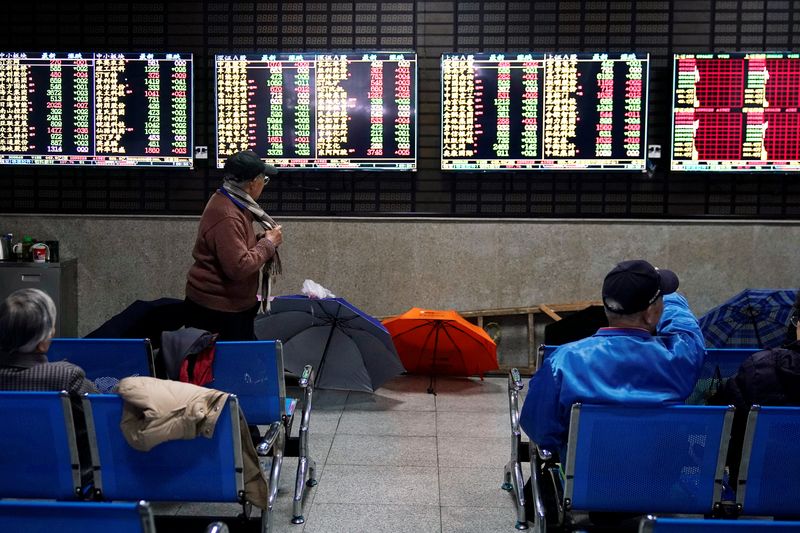SHANGHAI (Reuters) - Chinese fund managers who made big bets on energy companies are celebrating a year that was brutal for many of their peers.
Huang Hai, who manages three funds for Wanjia Asset Management, far outperformed the market by wagering on energy stocks such as CNOOC (NYSE:CEO), China Shenhua Energy and Shaanxi Coal.
His Wanjia Macro Timing Mixed Fund was the best performing balanced fund this year, reaping a return of 48.4%. That compares with a 22% loss in the bluechip CSI300 Index.
"Instead of chasing hot stocks, we chose the carefully planned battle of contrarian investment," Huang said on Wanjia's website. "Looking ahead, we remain cautiously optimistic toward China's stock market, where structural opportunities abound."
He said upstream resources companies would continue to benefit from an on-going rebalancing from growth to value, and his fund increased exposure in the third quarter to consumer, finance and construction stocks, which he said were undervalued.
Chinese oil & gas companies and coal miners have benefited from a surge in global energy prices this year that was partly triggered by the Russia-Ukraine conflict.
Heavy exposure to the sector also made Zhang Yuan China's best performing equity mutual fund manager this year, according to ranking by Refinitiv Lipper.
Zhang's Yingda State-Owned Enterprise Reform Equity Fund achieved a return of 31% in 2022, far ahead of its immediate follower with just a 12% return.
Energy companies including Shaanxi Coal, Shanxi Lu'an Environmental Energy, Guanghui Energy and Shenhua Energy are among her fund's top 10 holdings.
But Lipper's China fund ranking also showed that stock picking was not essential. A slew of passive funds that help Chinese investors allocate assets globally comfortably beat active funds as long as they placed money in the energy sector.
A Chinese index fund that tracks the Dow Jones U.S. Select Oil Exploration and Production Index generated a return of 66%.
The Lion Oil and Gas Energy Equity Fund, which invests in global energy funds under China's outbound QDII scheme, delivered a return of 53% for domestic investors.

The lowest performing Chinese mutual funds focused on the technology sector, such as the Hwabao WP Technology Pioneer Mixed Fund, which lost 50% in 2022, and Fullgobal Innovation Trend Equity Fund, which slumped 48%.
China's tech-focused STAR Market slumped 31%, while Hong Kong's Hang Seng Tech Index tumbled nearly 30%, reflecting the impact of both global monetary tightening and heightened geopolitical tensions.